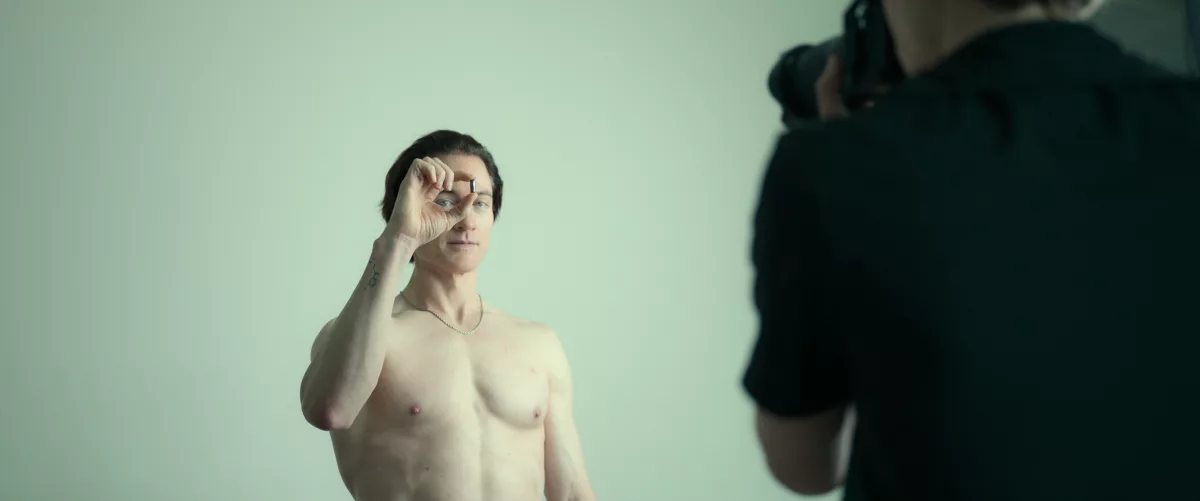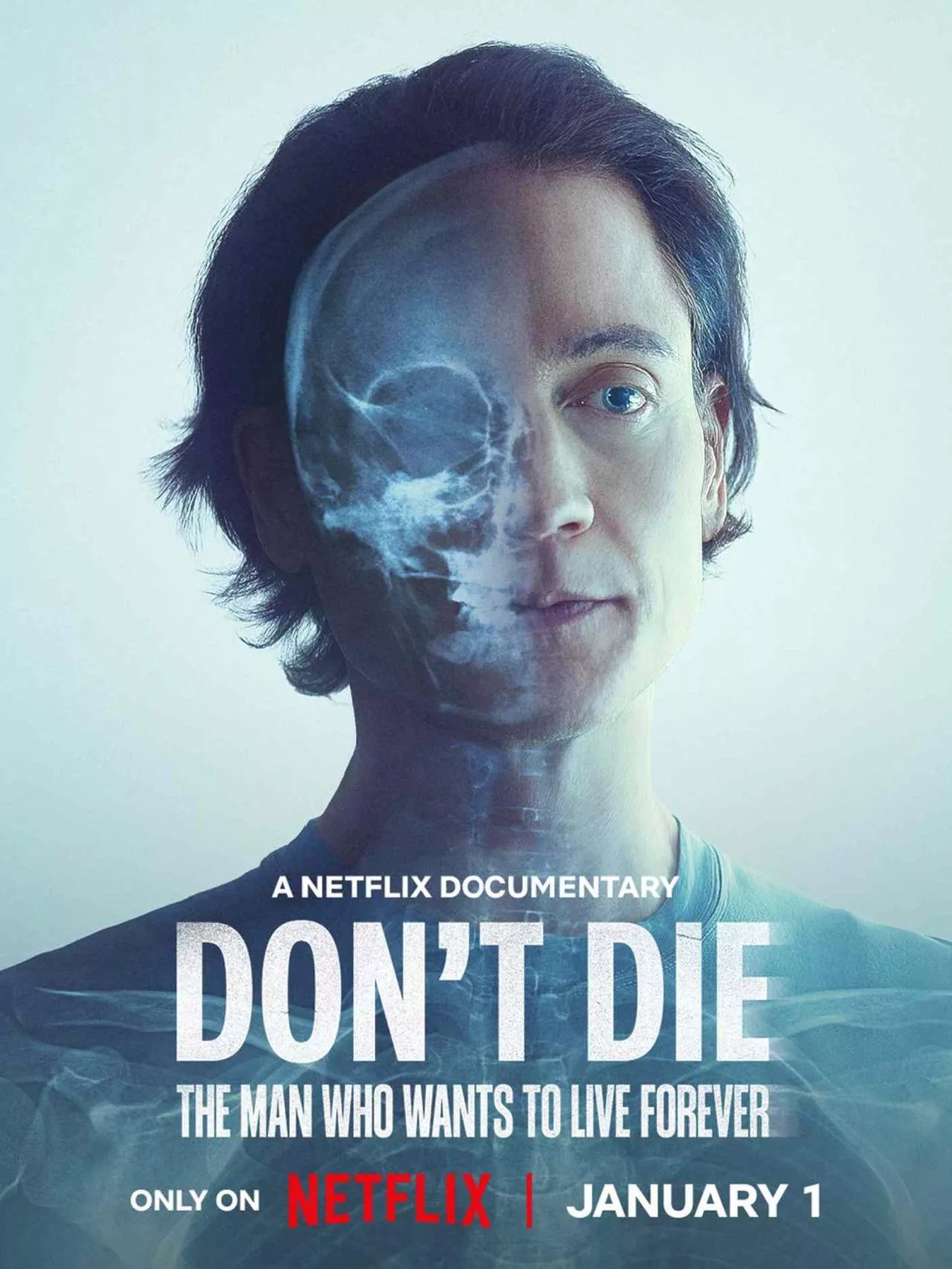What would you give for another five years of robustly strong and healthy life? Your money? Your time?
As progress in medical science and access to health care continue to extend our life spans, we have all seen loved ones living longer but with more ailments. Hearts, lungs, joints, and cognition and memory fail, making the final years often painful – and expensive – for the elderly, their families, and their caregivers. Vastly wealthy entrepreneur Bryan Johnson’s answer is the subject of a Netflix documentary called “Don’t Die: The Man Who Wants to Live Forever.” Johnson is devoting his fortune and all of his time to Blueprint Protocol, what he says is an algorithm for not just extending life indefinitely but reversing the effects of aging with exercise, diet, and a range of treatments and supplements that range from tested and medically approved to “works in mice,” “should work in mice,” “worth a try,” and “you have to fly to a free zone in Honduras for the injection because no other jurisdiction in the world would let a human anywhere near it.” Johnson jokes that it might make him “Hulk out” or give him the power to lift a car. (Narrator: It does not.) The doctor’s assurance that this gene therapy has a “kill switch” in case something goes wrong sounds too much like too many movies to be of much comfort.
Ashlee Vance, a journalist who has covered Johnson for years and co-produced the documentary, says in the film that his views on Johnson have shifted over the years, telling us, “He flipped the narrative.” That is reflected in this film, which layers the story. We might not be persuaded, especially when Johnson insists that he has turned over his brain’s choices to an algorithm, which is, after all, a choice, made and constantly evaluated by his brain, but the film raises questions about our assumptions that are provocative and worthwhile.
On one hand, extreme is not extreme enough of a term to describe Johnson’s regimen. From the time he wakes up to take “54 pills with a concoction I call the green giant” to his resolutely un-movable 8:30 pm bedtime for exactly eight hours 34 minutes of sleep, he spends his days exercising, taking treatments, and meticulously monitoring, measuring, and documenting his progress from the cellular level on up. In the first part of the film, the inevitable question is whether this is a life anyone would want to prolong. Johnson makes no time for what we would consider the most valuable parts of life, family, friends, travel, music, art, pizza, chocolate, for meaning, connection, and pleasure.
He derives meaning from his conviction that what he is doing will benefit humanity. First, there are those who follow his progress online and buy his book or the supplements and nostrums he promotes. But he also believes that his project will provide valuable research for scientists working on longevity. However, as one of the experts in the film points out, Johnson’s efforts to turn himself into a guinea pig are contrary to the most basic elements of the scientific method because he does so many things at once it is impossible to determine the impact of any of them (or predict the effects of the interactions). Johnson’s contribution to science and to any potential approval of medication or treatments by the FDA, is unlikely to be meaningful.
We may find ourselves agreeing with the skeptical podcasters and journalists who see Johnson as a kook or a crafty snake oil salesman who persuades gullible people that they have a problem and he has the answer. Who knows, there may be actual snake oil in that big supply cabinet Johnson shows us, and he laughs when he says that the supplements he promotes on his website (with links to Amazon that earn him a referral fee) sold out so fast that even he could not buy any more for a while. But then he makes some good points about the failures of our health care system, which is based on treatment rather than prevention. And we know he is right when he says our brains do not always guide us to the optimal long-term results. They are better in the short term, telling us when it is safe to cross the street than in the longer-term, making the right choice between pizza and the gym.
As the film continues, we learn something about Johnson’s background. We see his parents, who divorced when he was young. Johnson grew up devoutly Mormon, married at 24, became the father of three children. He was as devoted to his payment processing start-up Braintree as he is now to his health. He says, “I was grinding myself into the grave.” The pudgy, pale Johnson we see in archival footage is almost unrecognizable from the one we see today; indeed, when he is asked about his past life, he says, “that person’s gone.” He sold his business and left his religion and his family. The most significant development in the film is the arrival of his oldest son, Talmadge, also the moment that makes Johnson the most relatable. The younger children will not see Johnson because he left the church, but Talmadge moves in for his senior year of high school, or, as the meticulously quantifying Johnson puts it, 150 days. The father and son do the program together. “Let’s do splits as we eat breakfast.” And, in one of Johnson’s most controversial treatments, they do a triple-generational blood plasma transfer – Talmadge to Johnson, Johnson to his father. Talmadge also reminds us what real youth looks like; the film recognizes, and at some level Johnson does, too, that is what he wishes for.
Then Talmadge leaves for college, and for the first time we see raw emotion as Johnson sobs. He realizes he can no longer live a solitary life. Always data-driven, Johnson says, “I wouldn’t be so brazen as to think I can defy what the science shows about the human need for connection and community.” Dating does not seem to work; a former girlfriend sued him, with humiliating public accusations. But he does find connection and community and by that point, we are enough on his side that it seems like a happy ending. Or, since he plans to live forever, not an ending, just another chapter.
Now on Netflix.




















